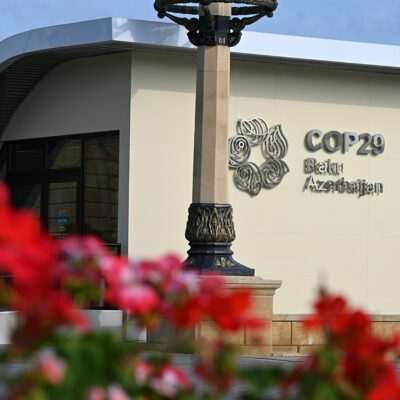 Image: Markus Winkler / Unsplash
Image: Markus Winkler / Unsplash
By Eyob Balcha Gebremariam
In February 2024, I found myself at a pivotal moment in the academic landscape, attending a regional network launching event of “Africanist researchers” at one of the UK universities. The room was a microcosm of diverse academic, cultural, gender, and racial backgrounds, all converging with a common purpose to establish a network of researchers. The organisers set ambitious objectives, including partnering to co-develop research proposals, recruiting more African students to their respective regional universities, and providing capacity-building support for Africa-based partners. This was the backdrop against which I observed the dynamics of coloniality, power and privilege that underpin such collaborations.
As a passionate advocate for decolonial perspectives and a contributor to the development of the Africa Charter, I was not only unsurprised but deeply concerned by the dominant focus of the discussion. It seemed to orbit around how UK universities and their researchers could maintain and even amplify their benefits from the existing power imbalances with their African counterparts. This perspective is a symptom of the deeply ingrained colonial mindset that continues to shape our research collaborations.
The extractivist approach, a deeply ingrained issue, was never questioned. The mood in the room took for granted the colonially crafted relationship between African and UK higher education institutions where empirical data and information are extracted from “Africa” using Western theories and concepts to be packaged as scientific knowledge. Not only on this occasion but in most events such as this meeting, “Africa” is approached as a supplier of international students. Africa-based researchers are often characterised as research assistants or primary data collectors for their UK-based counterparts.
During the plenary discussion, I shared my concern about the orientation of the discussion in the room. I underscored the urgent need for a more critical orientation that is acutely aware of the colonial designs and structures of research collaborations with African knowledge systems and Africa-based knowledge actors. I was determined to challenge the status quo and encourage my academic colleagues to transcend the normalised approaches to discussing “Africa.”
The subsequent parts of the discussion proceeded smoothly, and I gleaned valuable insights from the conversation with my fellow small group members. It was encouraging to see that everyone shared a deep concern about the issues I had raised. They also expressed their understanding of the challenges and commitment to addressing inequities in their respective capacities. However, the overall atmosphere remained somewhat conventional.
At the end of the inaugural session, concerns about the power imbalances in knowledge production and the need for a historically informed and conscious approach to forging new partnerships or strengthening existing ones were watered down to a mere mention of ‘ethics and ethical procedures’. The overall message was that we are good to go if we are sufficiently ethical in our dealings with “Africa” and Africa-based knowledge actors. There was insufficient time and space to delve into what ‘ethics’ truly entails. I gathered that my fellow participants were willing to move to the next step even though the ethical standards and procedures were not adequately clarified.
I call the above procedure the “Ts and Cs Apply” Approach. In this age of hyper-consumerism, we hear or see endless commercials for goods and services. After the main message, we often pay little attention to the so-called “terms and conditions.” I observed a tendency to approach the current drive of demanding equity, redressing power imbalances, and undoing colonial relations in knowledge production through international collaborations using the “Ts and Cs apply approach.”
In many events, the manifestations of coloniality at the idea, institutional, and individual levels will be raised. However, there is often limited or no time, space, or understanding to discuss them thoroughly. Such ideas and individuals who promote them are almost guaranteed to remain in the margins. The “Ts and Cs Apply” approach has just enough room to raise critical issues but is not good enough to make meaningful steps.
Normalised Coloniality in the UK Universities
Coloniality’s complex and deeply entrenched features in UK universities are too normalised. Hence, some genuine efforts to redress observed problems tend to become instruments of reinforcing injustice and inequities. One of the main reasons is that the strategy of most, if not all, UK universities is similar to the finance sector, where competing for resources through cutting-edge strategy for maximum gain and profitability is at the centre of their operation. In this regard, Africa offers an exciting opportunity.
Financially, the growing young population in Africa is a primary target for recruiting international students. “Overseas students” have already become UK universities’ primary income sources. The UK, in general, is in an advantageous position to benefit from the colonial legacy and the soft power it exerts in shaping peoples’ minds about higher education.
Even UK universities with socially responsible and justice-focused intentions reap unfair benefits from their operations in Africa. Most UK universities now have an “Africa Strategy” to manage their collaborations with the continent effectively. Their continent-wide footprints also count towards the new metrics of university Impact Ranking. The SDGs are the primary framework of the impact ranking. Since the SDGs define Africa through the deficit model, the abnormality of which needs fixing by external actors, UK universities are incentivised and well-placed to play this role. The universities can also benefit financially from the positive image they build from the impact ranking.
Since most quasi-solutions by the UK and other “Global North” universities adopt the “Ts and Cs Approach”, they become part of the problem rather than the solutions. UK universities are entrenched in the colonial game of extraction of data, intellectual labour and credibility. Now, there is a system in place that will reward and glorify them so that they can continue benefiting from their unfair position. Not paying enough attention to the terms and conditions of engagement and its colonial roots, we contribute to the problem.
Going beyond the “Ts and Cs apply” Approach
Redressing epistemic inequities and injustices should be the primary concern of efforts to redress the colonially designed power imbalances in international research collaborations. De-centring coloniality from our knowledge frameworks can be the primary step towards “dignified co-habitation” as human beings and societies. This is why the Africa Charter for Transformative Research Collaborations calls for de-centring Eurocentric epistemic orientations in scientific knowledge production concerning Africa.
Coloniality of knowledge normalised the hierarchisation of knowledge systems. In this hierarchy, non-European knowledges are often labelled as “Indigenous,” whereas Eurocentric epistemic orientations, values, and principles are universalised. The universalist claim by Eurocentric knowledge systems is an antithesis to the realisation of conviviality. Conviviality thrives by recognising the limitations of our knowledge frameworks and valuing other knowledge systems. Most UK and Global North universities are vectors of the universalist claim of Eurocentrism. If we are conscious of the incompleteness of our epistemic orientations, our transboundary research initiatives will have room for epistemic humility – the openness to learn from others.
In a system where the coloniality of being is normalised, non-Whites/non-Europeans have less value as humans and less credibility as knowers. They are often portrayed as faceless or nameless enslaved beings, captives, colonial subjects, drowning migrants, influx or wave of illegal aliens, collateral damages of imperial wars or terrorists, especially if they dare to resist colonisation and colonialism. A university system and a research collaboration that does not recognise the human and epistemic dignity of the ‘other’ reinforces coloniality.
Going beyond the “Ts and Cs Apply” approach requires intentionally disruptive actions, thought provocations and arguments that can bring the business-as-usual lifestyle to a grinding stop. Colonial relations sustain societies’ current affluent and luxurious lifestyles, mainly in the Global North. Coloniality of power conceals the blood, tears, and sweat of societies that produce our daily consumables (tech, food, cloth, oil, jewellery, etc). If our pursuit of knowledge through international research collaboration takes this for granted, we are culpable either by omission or commission.
Note: This article gives the views of the author, not the position of the Swedish Development Research Network. It was first published by the Development Studies Association of the UK.










